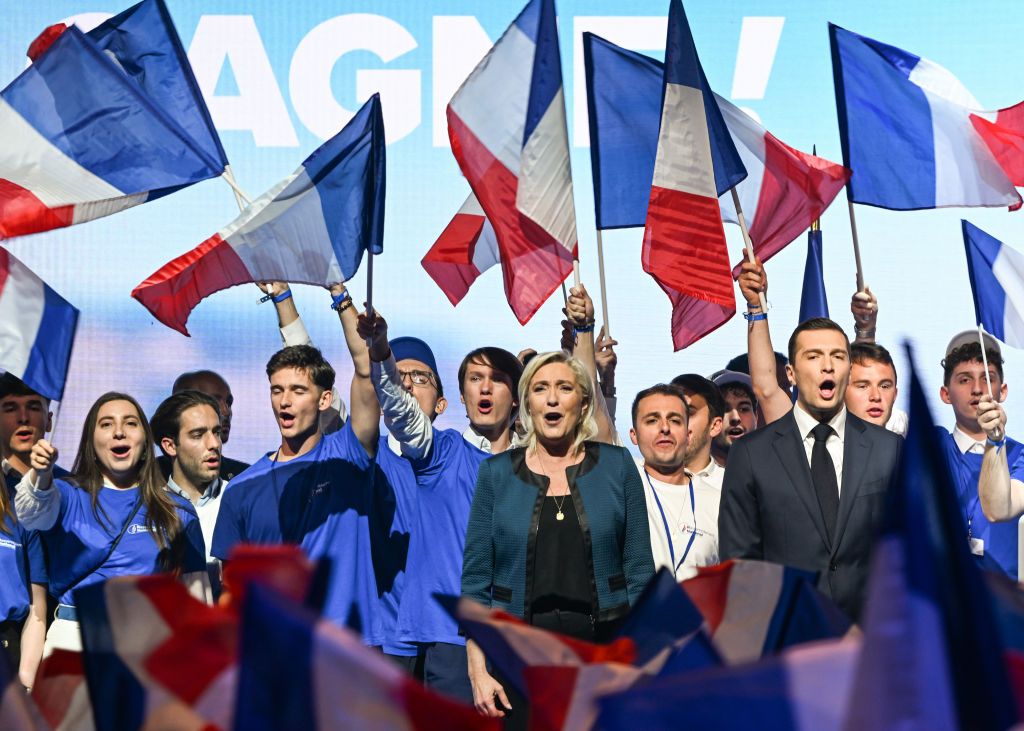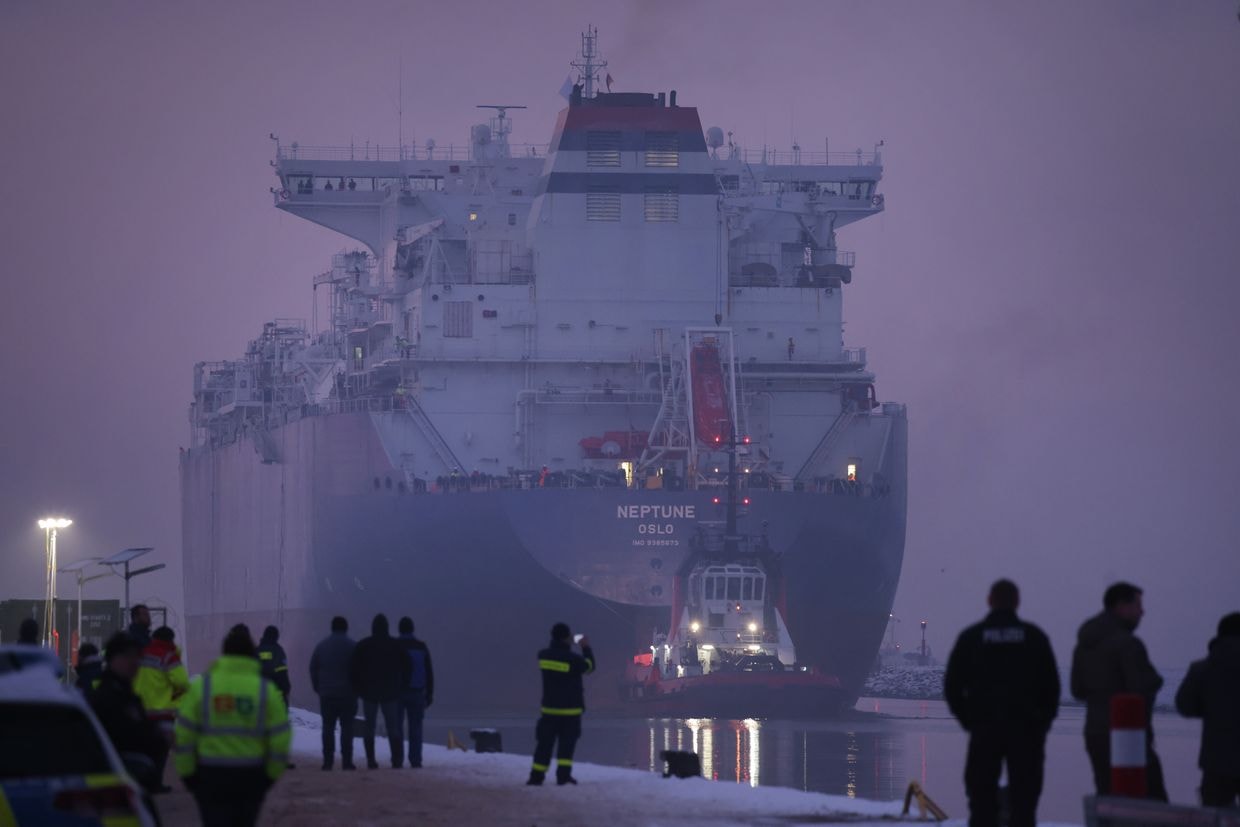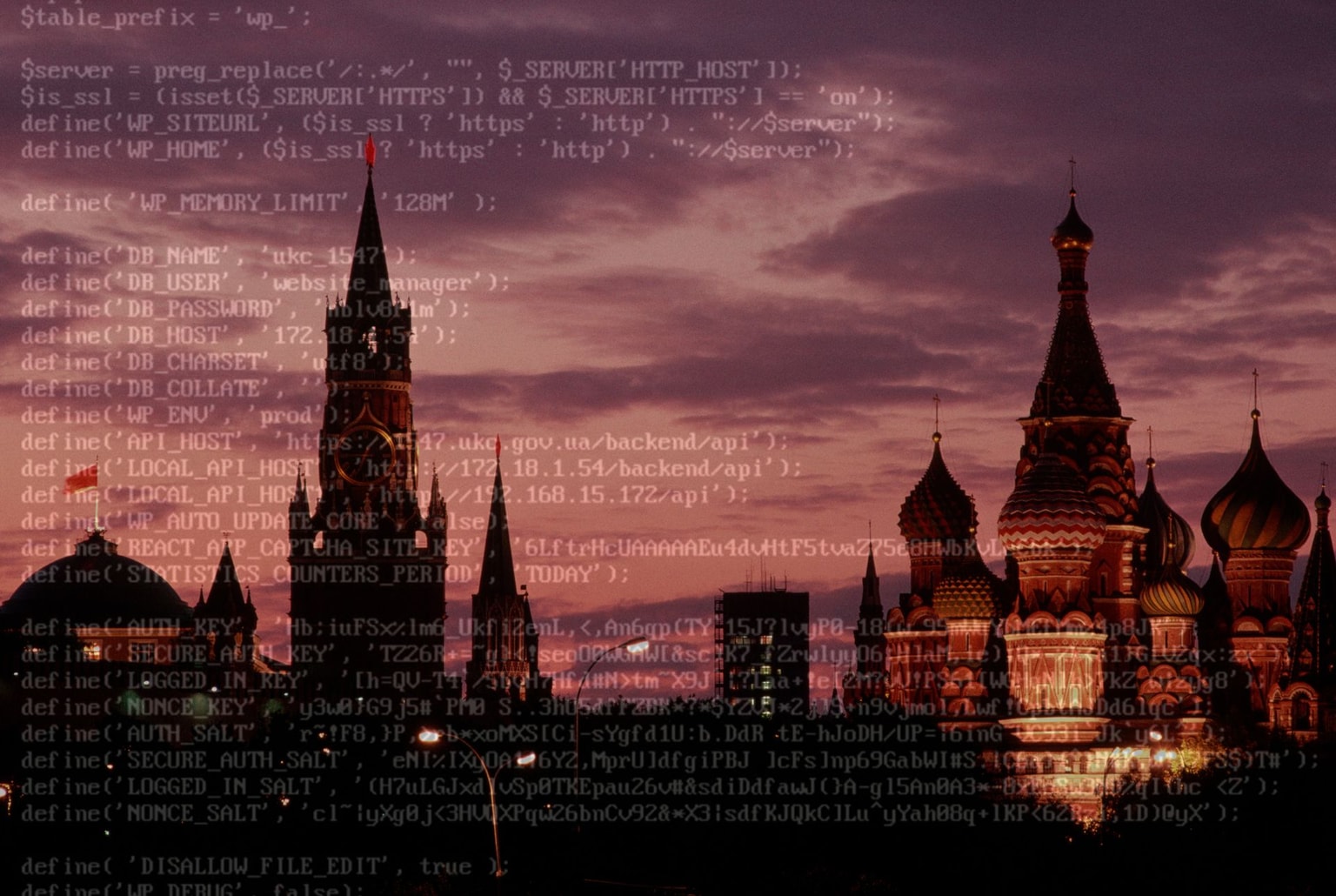Opinion: Why arguments against using Russian assets for Ukraine don't hold water
Unless Western governments confiscate all frozen Russian assets and give them to Ukraine, Ukraine will lose the war, and that outcome will be far more more costly for the West.

A stuffed bear hangs on a tree against the background of a building destroyed in Borodianka, Ukraine, on April 5, 2022. (Oleg Pereverzev/Global Images Ukraine via Getty Images)

Timothy Ash
Associate Fellow at Chatham House
If Ukraine is going to defeat Russia and rebuild itself after the war, it will need huge sums of money, probably exceeding what Western electorates and politicians are willing or able to provide. The good news is that there is a massive pot of non-Western money already available: the $300 billion of frozen Russian sovereign assets held in Western jurisdictions. The bad news, however, is that Western countries have been unable to agree on a shared plan of action to use these assets.
Frozen Russian reserves could tip the scales of the war in Ukraine’s favor and greatly reduce the financial burden on Western taxpayers. Yet opponents of seizing them have failed to grasp the harsh economic realities of the situation. The current levels of Western support simply do not add up to a Ukrainian victory.
Western funding merely to keep Ukraine in the war currently totals roughly $100 billion annually, or close to $8.5 billion per month. But for Ukraine to pose a serious challenge to Russia, the West would need to push this spending closer to $150 billion per year – or about $12.5 billion per month. This was the level of spending in mid-2023, when Ukraine was gaining the upper hand. By late 2023, however, spending had collapsed to $4 billion per month, and a bill to provide additional aid was stuck in the U.S. Congress, causing Ukraine to lose lives, territory, and momentum.
Should we really expect Western governments to tap their own taxpayers for another $50 billion per year to fund Ukraine? What if Donald Trump wins this year’s U.S. presidential election and current American funding (close to $45 billion per year) dries up? Europe would be unlikely to be willing or able to fill the even larger $95 billion annual financing gap. Yet opponents of confiscating Russia’s assets neither offer any alternatives nor address the consequences of failing to fund Ukraine.
Make no mistake: a Ukrainian defeat would bring far higher social, political, and economic costs to Europe in the form of huge refugee flows, greater security risks, and hundreds of billions of dollars in increased annual defense spending to counter the threat of Russian aggression.
Opponents of seizing Russia’s assets are not being honest with their own taxpayers about the realities of burden sharing. An accurate description of the status quo is that Western taxpayers are bearing the full burden of the war, while the assets of Russian taxpayers are being protected. This is neither morally right nor politically acceptable. But opponents have come up with plenty of weak arguments for why confiscation cannot be carried out.

One claim – that it would be illegal – has been widely challenged by legal experts, who have shown that international law does permit such a move. Other arguments concern economic risks, but these do not withstand scrutiny, either. We are told, for example, that seizing Russian assets could undermine the reserve-currency status of the dollar and euro, with authoritarian regimes pulling their own reserves out of the West.
But how realistic is this scenario? By immobilizing $300 billion worth of Russian assets in February 2022, the West already put those funds beyond the use of the Russian central bank – and with conditions for their return that Russia is unlikely ever to accept. In this case, there is little practical difference between “frozen” and “seized.”
Moreover, recall that emerging-market governments’ response to this de facto seizure two years ago was to do nothing. Even if countries like China and Saudi Arabia wanted to shift their assets elsewhere, how would they do it? There is a reason why emerging markets hold trillions of dollars of assets in Western economies: there simply are no alternatives to G7 currencies and markets that can offer similar liquidity and security.
If a government moved its assets anyway, it would face devastating consequences, destabilizing global markets and provoking retaliation in the form of Western sanctions and a flight to quality back to the euro and dollar. China and Saudi Arabia might talk the talk, but they would never walk the walk, because they understand that doing so would damage their own economies through lower global growth, less trade and investment, and lower oil and commodity prices. We know these regimes value stability above all. Why would they ruin themselves just to prop up Russian President Vladimir Putin?
Opponents of confiscation also argue that it would leave Western assets in Russia subject to retaliation. But the Russian state is already forcing sales of these assets at knock-down prices to allies of the Kremlin, as well as imposing punitive taxes on Western enterprises. Moreover, Western assets in Russia are dwarfed by Russian assets in the West, and there is no good reason why Western taxpayers should bail out Western companies that made bad business investments.
Notwithstanding the many unrealistic or exaggerated risks linked to seizing Russian assets, there is one that needs to be taken seriously: G7 countries must act in unison; otherwise, authoritarian regimes may divide and rule by picking between Western reserve currencies. Moving out of the dollar to the euro (or another currency) must not come to be seen as a viable defense against asset freezes and seizures. If liquid alternatives to the dollar are allowed in G7 jurisdictions, the flight of reserves would become a real danger.
The choice is clear. Unless all frozen Russian assets are confiscated and given to Ukraine, Ukraine will lose the war, and the cost for the West will be much higher. There is no logical alternative to an asset seizure. G7 leaders should stop finding excuses, stop being dishonest with their own taxpayers, and just get it done.
Editor’s Note: Copyright, Project Syndicate. This article was published by Project Syndicate on June 12, 2024, and has been republished by the Kyiv Independent with permission.The opinions expressed in the op-ed section are those of the authors and do not purport to reflect the views of the Kyiv Independent.












